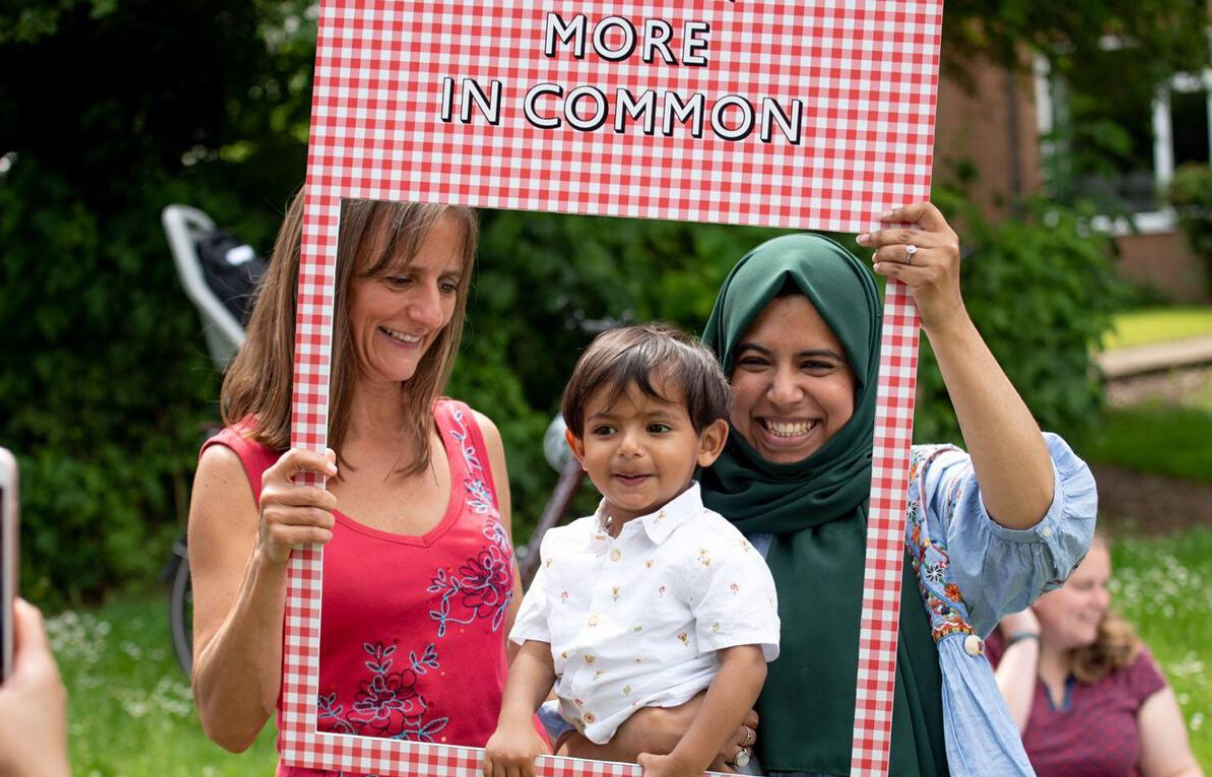A message from Catherine Anderson, CEO of the Jo Cox Foundation, on the short- and long-term impact of the current crisis on social connections in the UK.
At The Jo Cox Foundation, our vision is for a kinder, more compassionate society in which everyone has a sense of belonging, and where we recognise that we all have more in common than the things that divide us.
As I write this, we are experiencing the most dramatic changes to our everyday lives, our communities, and our global society. Coronavirus is first and foremost a medical crisis, and rightly our government and institutions must tackle its spread. But as we exit the acute phase of this challenge, we will likely see a long-tail of cumulative impacts affecting the social and emotional wellbeing of our entire nation.
In very different times, Jo Cox correctly identified two essential truths that are now self-evident. Firstly, that social isolation and loneliness do not discriminate. Secondly, that we are far more united and have far more in common than that which divides us. And it is these two statements that have helped shape our response to the impacts of coronavirus – and to consider how, at this incredibly difficult time, we can in fact build ways to strengthen our bonds of community. By placing social connection in a time of physical distancing at the heart of our national civil society response, we might find that a key legacy of this time is that we rediscover the power and importance of connection.
Building on our work leading the Jo Cox Loneliness Commission, we are forging a new cross-sector partnership – the Connection Coalition – to help amplify and coordinate efforts to reinforce meaningful connection and mitigate the impact of isolation on social wellbeing throughout the crisis. By driving a campaign of hope via positive stories of connection, the coalition will exist to inspire people to build and maintain strong reciprocal social relationships. You can join the Connection Coalition here.
All over the world, the coronavirus crisis has shown us that we can follow the requirements of physical distancing without abandoning social connection. All of us have been heartened and indeed comforted by the amazing and humane stories that began to proliferate even before the true severity of the situation became clear. Often, these were simple but effective: neighbours convening hyper-local support groups to deliver food and medication to the most vulnerable, or children sharing hand-drawn rainbow images to display a shared message of hope and togetherness in windows nationwide. These are not only immediate acts of connection, but the foundation blocks of that sense of belonging that Jo Cox so believed in.
These acts can build a patchwork of connection and kindness that really illustrates why the principle of belonging is not a ‘nice-to-have’, but an essential. While we may be physically distant from each other, never have we been more aware of the ties that bind us together – and that we desperately need structures of care and compassion. They are the sinews that hold and support the muscles of our communities.
Looking ahead, we will be living in a very different kind of country, one in which physical distancing may become a factor – if not always a norm – for some time as we build immunity and try to find ways to reduce the clinical impact of a brand new disease. We can all play our part now in ensuring that, come what may, we will at least be able to fall back on the care and compassion of our own communities. And that is something that will stand us in good stead whatever the crises we face. For while government will strive to keep us safe, our communities must strive to keep us all going.
The Connection Coalition will seek to not only provide a practical space in which a whole spectrum of organisations can share, learn and innovate together, but will contribute to a national conversation that puts greater emphasis on a number of the qualities that we are already seeing thrive at a time of national crisis:
- Positivity – What we can do, rather than what we can’t.
- Humanity – In a crisis we see the best in people.
- Empathy – Faced with a common foe, we discover our shared values.
- Connectivity – We are already building new connections within and between communities that make us all stronger.
As Rachel Reeves and Seema Kennedy – co-chairs of the Jo Cox Loneliness Commission – wrote last week, “The reaction to coronavirus has shown the very best of us. We need to bottle it and store it with care. We were proud to take forward Jo’s work after her murder. The challenges she highlighted are not going to go away. But from the cauldron of today’s shared experience are being forged new and stronger tools to equip us better than ever before to meet them.”
